
Who is playing college football tonight, Sept. 14?
Which college football games are on tonight, Sept. 14, to get the Week 3 action started a bit early on Thursday night?
1970-01-01 08:00
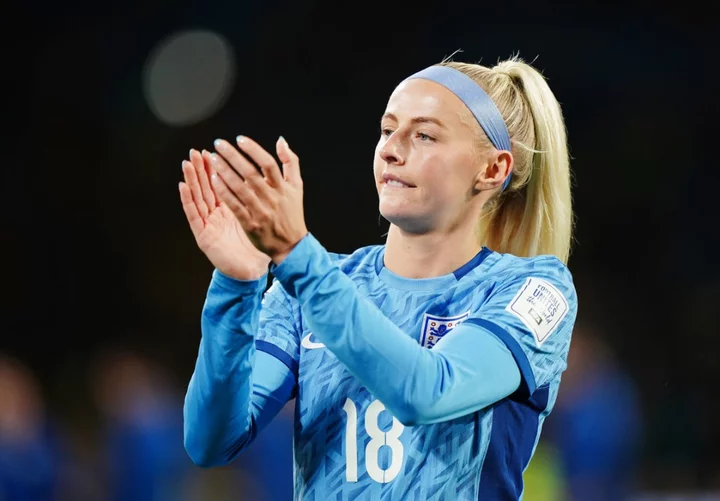
Chloe Kelly says World Cup final loss will not stunt growth of women’s football
England striker Chloe Kelly expects the women’s game to continue growing in the country despite the Lionesses’ World Cup final heartbreak. The Manchester City forward, match-winner in the Euro 2022 final, this time experienced the heartbreak of defeat as England were beaten by Spain in Sydney last month. But the 25-year-old looks on the tournament as a whole as a positive experience that is only likely to generate further interest in the sport. She feels proof of that came on Thursday as City announced a new agreement with baby gear brand Joie to become the new naming rights partner of their Academy Stadium. “It was a great summer, and a great summer for women’s football and England,” said Kelly, “It’s great to be winning the Euros and then going on to a World Cup final. It’s great for the country and great for the women’s game. “That success obviously brings deals like this to the women’s game, which is really important for the growth of the game. It is exciting and there is a lot to come still.” Kelly has already put the disappointment of the World Cup final loss behind her as she focuses on pre-season training with City. She said: “It’s good to get back in with the team, get back on the pitch, keep learning, find those relationships again and keep building on last season. “Of course I’m not on top of my game as it’s still pre-season - I don’t want to peak too early - and it is really important we build as we go. “Starting the season well is really important but I think as we go we need to get better. It’s important not starting where we need to be at the end of the season. We need to be consistent throughout.” After missing out on honours last term, and narrowly falling short of a Champions League spot, Kelly is determined for the team to make its mark. She added: “We want to be winning trophies. It is really important for us to be doing that, and Champions League football - we need to be in it and we need to be pushing for that.” Manchester City begin their Women’s Super League campaign with a trip to West Ham on October 1 but prior to the start of the WSL, Kelly will return to the international fold for Nations League games against Scotland and the Netherlands on September 22 and 26 respectively. England manager Sarina Wiegman has expressed concern at the scheduling of the matches so soon after the end of the World Cup in Australia. “It is important we recover well,” Kelly said. “We need to look after our bodies in these moments.” Read More Sarina Wiegman ‘worried’ about schedule as England prepare for Nations League Gary Neville received abuse ‘like nothing before’ in social media swap with Jill Scott ‘Get back in the kitchen’: Lioness Fara Williams on the aggressive sexist and homophobic abuse she gets online How Fifa is leading the push for football transfers’ biggest change since Bosman Maguire’s mother hits out at criticism of England and Man United defender Harry Kane signs memorabilia deal with American company Fanatics
1970-01-01 08:00
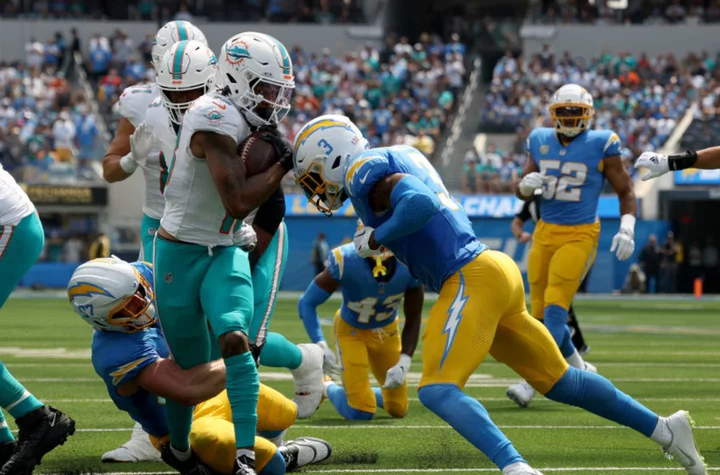
Who is playing SNF in Week 2 of the NFL schedule?
Sunday Night Football got off to a snoozer start in Week 1. Which two teams will be waiting all day for Sunday night in Week 2?
1970-01-01 08:00
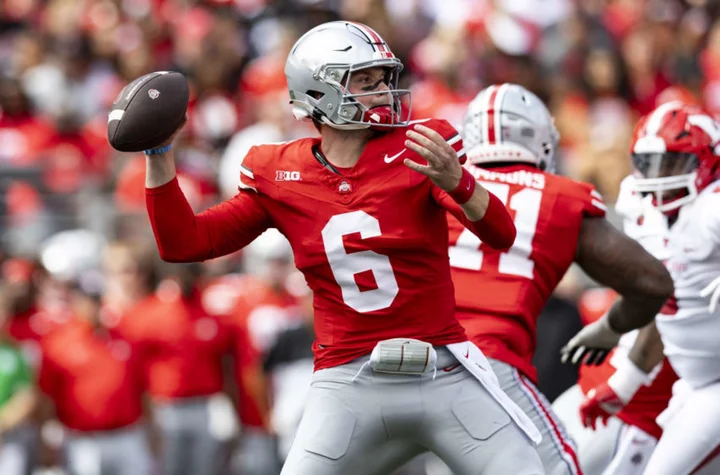
Red Flags: 5 college football teams on upset alert in Week 3
College football upsets could be brewing in a lackluster Week 3 slate, right when CFB fans aren't expecting them. These five ranked teams are still getting put on upset alert.
1970-01-01 08:00

Roundup: Kendall Jenner, Bad Bunny Are Still Dating; Braves Clinch NL East; Aaron Rodgers Hints at Jets Return
Kendall Jenner and Bad Bunny are still dating, the Braves clinched the NL East, Aaron Rodgers hints at Jets return and more in the Roundup.
1970-01-01 08:00
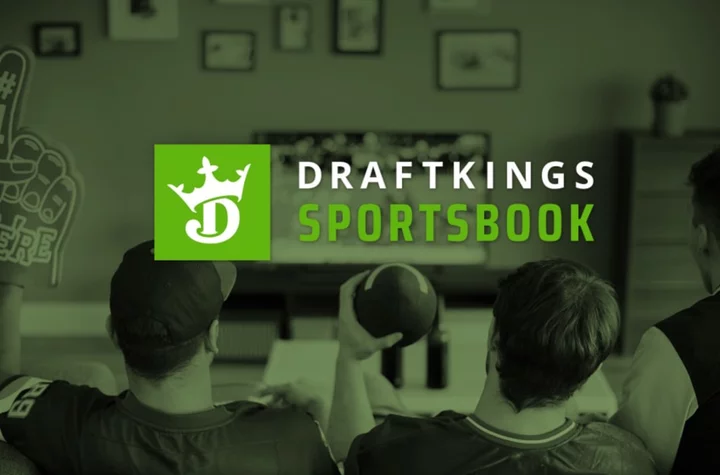
Bet $10 on Thursday Night Football, Win $400 GUARANTEED + $100 Off NFL Sunday Ticket!
FanDuel and DraftKings are giving new users a guaranteed $400 bonus plus $100 off NFL Sunday Ticket just for betting $10 this week! Find out how to claim each offer here.
1970-01-01 08:00
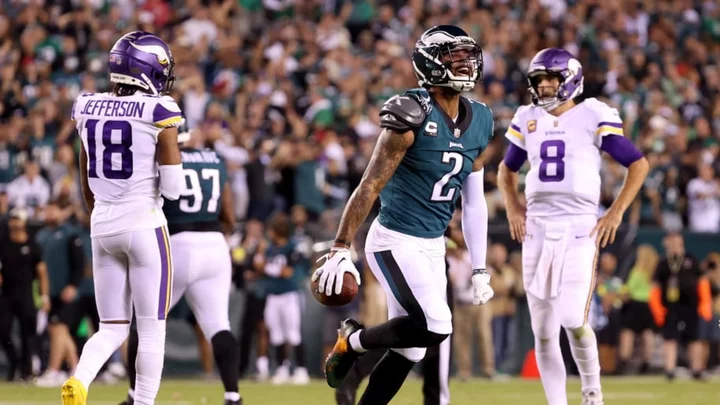
Who is Playing Thursday Night Football Tonight & How to Watch
Everything to know about how to watch Thursday Night Football tonight.
1970-01-01 08:00
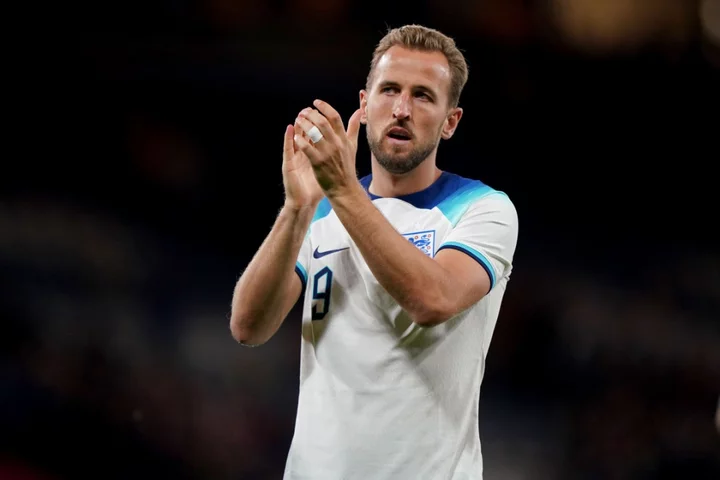
Harry Kane signs memorabilia deal with American company Fanatics
England captain Harry Kane has agreed a deal to make his memorabilia available to purchase exclusively through American company Fanatics. The platform will become the sole distributor of the Bayern Munich striker’s autographs, match-worn shirts and boots and other collectable items. Kane, who is both England and Tottenham’s record goalscorer, is the first British athlete to partner with Fanatics, who have signed deals with a host of big-name American athletes including former NFL star Tom Brady and MLB’s Aaron Judge. The 30-year-old, who was drawn to the company by its links to the NFL, which he has said he one day hopes to play in, said: “I’m thrilled to announce my new exclusive memorabilia partnership with Fanatics, who is the renowned, innovative leader in this space. “This partnership will allow me to share some of my most incredible career memories and experiences with sports fans across the globe. “It’s an honour to join their world-class roster of athletes across all sports – including the NFL, which I am incredibly passionate about. “I am extremely proud to be aligned with a company that is raising the game for sports fans all over the world, and I can’t wait to show what we have in store for fans over the years to come.” The partnership comes after Kane scored his 59th goal for England in Tuesday’s friendly win over Scotland at Hampden Park. He recently told the PA news agency that he is targeting a century of goals for his country. The striker is in the early days of his time at Bayern following his £100million move from Spurs in the summer. He left his boyhood club as their record goalscorer, with 280 competitive goals, 16 more than Jimmy Greaves. Read More Charity boss speaks out over ‘traumatic’ encounter with royal aide Ukraine war’s heaviest fight rages in east - follow live
1970-01-01 08:00
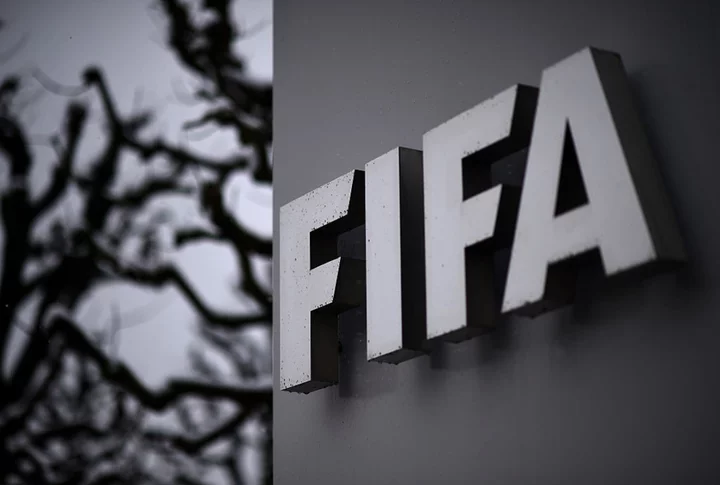
How Fifa is leading the push for football transfers’ biggest change since Bosman
As with so much in modern football, a moment that could transform the entire game is set to come far away from the pitch, and probably in court. Fifa is currently in a battle with most of the game’s agents, although the global governing body would not characterise it as that. Officials insist they are simply engaging in a reform of the industry that “everyone except some agents consider absolutely necessary to address widespread abuses and a system currently fuelled by speculation”. That extends to all of the game’s major stakeholders and the primary European institutions – from the European Commission to the Council of Europe – who have long asked Fifa to “do something”. The position on the other side, most notably the Association of Football Agents [AFA], is that this does indeed come down to European law - but not in the way people at Fifa think. They are strident that the federation has no legitimacy to regulate on this. The view is that representing players is a business outside of the running of the game, and that the provisions for the forthcoming Fifa Football Agent Regulations [Ffar] go against European Union anti-trust law - especially as regards forbidding payment to a supplier above a certain level. The Court of Arbitration for Sport did rule in July that Fifa has legitimacy here, but a referral from a District Court in Germany has brought the case before the European Court of Justice [ECJ]. If this already seems a dry back-and-forth of legal claims, it will all have significant influence on how the very sport is played. Not exactly a new Bosman ruling, but a potentially transformative case all of its own that does come down to far bigger issues such as sport versus business and what any cultural model of football should be. Fifa’s entire position is that it is addressing what is good for the game rather than actually taking on the representative industry. “Good agents are hugely important,” says Jan Kleiner, Fifa’s Director of Football Regulatory. “But since agents act at the very centre of the international football transfer system, Fifa has the authority and responsibility to regulate their activities within that system.” The root motivation of the reform is that the current transfer ecosystem incentivises the movement of players, primarily through the focus on commissions, which accelerates the market and concentrates increasing money at the top end of the game so affecting competitive balance. As justification for this, Fifa relates a few key figures. Every year, players move more quickly and more often between clubs. Every year, 10 times more money is paid to agents than paid to grassroots clubs. Every year, the money spent on transfers grows, as do service fees paid to agents. A 400% increase in the latter over the last decade saw a record of $696.6m (£557.3m) in this window, representing nearly 10% of the total spending on transfer fees. That has gone hand in hand with the growth of so-called “super agencies” and conglomerations, the largest of which is CAA Stellar. The current conditions are seen as perpetuating their domination. Pointedly, as regards big agency domination, even smaller agencies and independents dispute that. They say Fifa’s plans will merely strengthen the power of the “supermarket model”, since the larger companies will be able to weather the greater costs. There is also an insistence one of many unintended consequences will be the entry of more unscrupulous agents due to a willingness to offer what other representatives won’t. The view of one lawyer working with the AFA is that the idea it is agent commissions driving the market is “beyond making any sense”. All of the demand comes from the clubs. They are willing to pay the players so much as part of what has become a financial arms race, and agents merely mediate this. There is also a belief that many of the economic issues that Fifa describe also come from systemic dysfunctions and inequalities in football’s ecosystem, that any problems with agents are only a symptom of. “People read cartoon descriptions of agents from rare transfers that bear no relation to the actual reality of the industry,” one prominent agent privately argues. The fact that the AFA’s legal challenge against the regulations takes place in the last 10 days of September has limited the ability of many involved to speak openly on this. That comment still points to one of the many tensions at the core of this. There are then separate but bigger concerns about how the current system has brought reports of unethical and criminal behaviour, as well as cases of abuse and even human trafficking. With the matter going before the ECJ, Fifa is confident the European judges will understand the specificities of the football industry. The agents are concerned Fifa doesn’t understand their business. “They don’t know the specifics because they only see the surface,” was one response. This is a shared view even among agents who despise each other – a common enough theme – although some recognise a need for reform. This is where Fifa would rebut the idea it is ignorant to the business. It points to a five-year consultation process that involved FifPro, the European Club Association, the World Leagues Forum as well as member associations and confederations, and “a large number of agents and agent representative organisations”. Fifa insists that feedback is overwhelmingly positive, even from agents and agent organisations. The head of one major football body insists the requirement for better agent regulation is “inarguable” and unanimous, and many would point to how all of the major American sporting associations have the same rules that Fifa is trying to introduce, including almost identical caps on commission. Against that, high-profile agents say there was “a lack of invitation” and that there has “never been any public disclosure of these consultations”. Fifa expressly states this is factually wrong, and that there was both invitation and disclosure as illustrated on their website. Sources within the global body argue that all representative organisations were invited but some of the biggest agents just refused to engage, and that this is now seen as a litigation strategy to delegitimise the entire process. Either way, if Fifa has succeed, their reforms will bring the following: The establishment of a licensing system, involving an exam A requirement for agents to provide full transparency towards clients about payments they receive The payment of agent service fees via the Fifa Clearing House, as a measure against financial crime and to protect financial integrity The prohibition of multiple representation, so an agent can only work for any one party in a transaction Stricter regulations for the representation of minors The establishment of a mandatory service fee cap, to avoid excessive financial incentives and conflicts of interest It is the last of those that has provoked the fiercest dispute from agents, beyond the opposition to the basic premise of Fifa regulating. The cap is being described by lawyer Philip Wehler as a “hard-core, anti-competitive measure fixing purchase prices” that represents a “violation of EU anti-trust laws”. Fifa’s position is that to protect the functioning of its transfer system in line with its 2001 agreement with the European Commission, a cap is necessary to reduce existing financial incentives which promote player movement. It is also said that the cap is a pro-competitive measure, because lump-sum commissions have such a destabilising effect on the economic make-up of the game. Aside from how they incentivise movement, only a handful of clubs can pay the £20m minimum commission required for most top talent, further concentrating that talent among six to eight teams. There is also the argument that the very nature of modern football ensures that the more money that swirls around the more player wages at a narrowing top end in an escalating arms race. Fifa wants to reduce transfer incentives and nuance how service fees are paid, so they are proportionate to salary. This would in essence mean the interests of player and agent are more aligned, increasing transparency regarding what footballers pay for. As it stands, Fifa posit, commission on fees cover a wide range of service that agents otherwise tell their players is “for free”. A series of agents spoken to for this article say that reflects Fifa’s misunderstanding of the business. For one, they argue, service fees aren’t just for transfers. They’re also for contract extensions, and the majority of good agents would never push a move their client doesn’t need, since this would be bad for everybody in the long term. What’s more, all modern agents right down to independents are expected to have office premises, player care staff, media, social media and scouts, not to mention a lot of expenses on travel. All of this is to serve the player and “has a direct correlation to performance”. Fifa admits it’s a “cultural shift” to charge players for this at base, but that it’s a more “transparent and fair” way of doing business. “It is difficult to understand why agents would not be able to issue transparent invoices to their clients for all additional services, which are not subject to the cap,” Kleiner says. Agents would respond that the cultural shift would be agent income being restricted at the exact point players expect greater service. That could also lead to the unintended consequence of further incentivising transfers since some agents would instead just seek more commissions. “It’s like a streaming service saying if artists aren’t happy with their royalties they can do more concerts,” one agent says. “Could they do it? Yes. Is it a solution or even rational? No.” The argument is again that super-agencies could more easily absorb this. Fifa would also point out that the cap wouldn’t apply to sponsorship or any endorsement deals. The agents say that the vast majority of players – right up to mid-table clubs in even the Premier League – don’t have commercial appeal so would end up being the ones punished. As regards the question of representing multiple or all parties in the same transfer, the motivation behind this is pure transparency and to avoid a conflict of interests. The argument on the other side is that it’s simply what the relevant parties agree. Fifa would say it is important because it could theoretically mean players don’t have the same level of information as their agents. There is also pushback on the point of how more money goes to service fees than grassroots since they are seen as two unrelated areas. Agents say they only take a percentage of a player’s salary, and that has nothing to do with money coming from or going to grassroots. It is viewed by one representative as a false comparison to further a caricature. Fifa would counter that it is highly corrosive for the game’s solidarity if so much money leaves its ecosystem, and that it is necessary for redistribution mechanisms to function. The argument there is to ensure less money goes to off-shore accounts or impenetrable tax havens, with that increasing financial transparency and integrity. Agents based in England argue there is already a workable clearing house in the country. Fifa would respond they have to take a “global perspective” and create a level playing field, which would consequently mean the changes for those in England wouldn’t be that dramatic. One argument outside England, however, is that amounts to control of a money-flow that further facilitates uncompetitive price-fixing. Even on the issue of minors, agents would dispute Fifa’s position, insisting they require representation the most. The reality will still be that clubs want to sign the most promising young players. An absence of representation could just lead to more unscrupulous actors or illegal payments. Fifa’s position is that the rules do not prohibit representation of minors, but set a reasonable and proportionate framework. If all this sounds like the “wild west” on a market that Fifa says is a description from an agent, another counterpoint is that this description only arose after 2015. That was when the global governing body decided to deregulate the agency business, which agents argued against, and points to why they should be listened to now. Fifa actually admits that was “a mistake by the old administration”. “But we could have continued to do nothing,” one source says. “Those agents who want to work in a transparent manner have nothing to fear.” The issue of licensing is the one area where there is common ground. Otherwise, differences abound. Many will be laid out in the legal challenge in England, where some high-profile agents will be cross-examined. A decision on that will come at some point before the new regulations are implemented as planned on 1 October. The one country that could be exempted is Germany, due to a successful provisional injunction and an appeal by Fifa that won’t be heard until 24 January. That could bring a “scattered landscape” that the governing body would have to work around, and could create loopholes, before a potential hearing in front of the ECJ and regional courts. Petros Mavroidis, a Greek-Swiss professor who has worked on football issues right up to Financial Fair Play, believes the entire case is “going to be instructive” for the future of the game. “It went before CAS and it was decided that Fifa has the right to regulate football agents. Now is the similar case before a German court that will end up before the European Court of Justice. “If I go by past evidence, the European Court of Justice doesn’t pay too much heed to CAS. “If this happens, I would expect the court to start and ask who has the right to regulate agents. Have member states transferred this right to Uefa/Fifa? And if yes, let’s assume yes, does Fifa observe European law when regulation agents? If no, it’s the end of the story. Fifa cannot regulate, and leave it at that. “It’s very difficult to predict what will happen but, no matter what, even if the court says Fifa can regulate, it will say it has to observe EU law. That means observing competition law, so the question will be can Fifa impose price regulation.” Fifa says it comes down to a simple motivation for them. “Ultimately, you always have to look at the counter-factual,” one source says. “What would happen if you didn’t implement these rules? Inequality increases in the game, existing problems become worse and worse, and regulation becomes inevitable.” Read More Sarina Wiegman wants focus on Spain’s World Cup winners and not Luis Rubiales Sarina Wiegman ‘worried’ about schedule as England prepare for Nations League Luis Rubiales refuses to apologise to Jenni Hermoso over ‘consensual’ kiss Luis Rubiales resignation has to be ‘the start of something’, says Georgia Stanway Jenni Hermoso complaint against Luis Rubiales filed with Spain’s high court Stephen Kenny refuses to bemoan luck following Evan Ferguson injury
1970-01-01 08:00
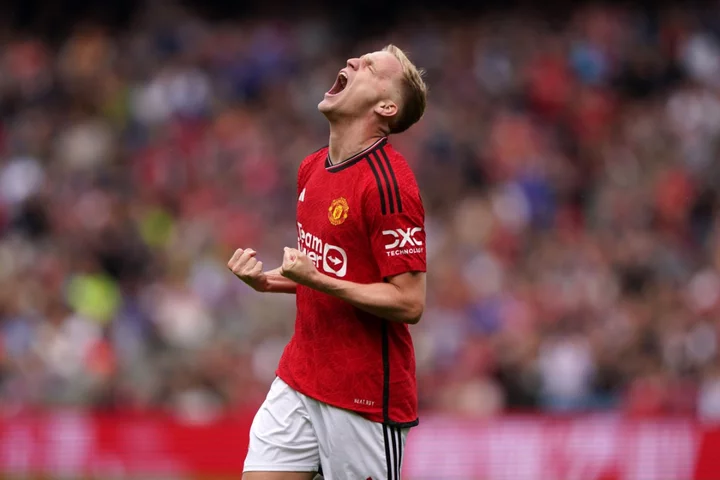
Football rumours: Donny van de Beek likely to stay at Man United until January
What the papers say Manchester United midfielder Donny van de Beek is likely to stay at the club until the next transfer window in January despite interest from clubs in Turkey and Qatar, the Mirror reports. The 26-year-old only played seven games last season and is yet to feature for the club so far in 2023-24. The Mirror also says Turkish club Besiktas are hoping to land 20-year-old Manchester United midfielder Hannibal Mejbri on loan before the Turkish transfer window closes. Nottingham Forest midfielder Jonjo Shelvey is close to joining Turkish club Rizespor before the deadline on Friday, according to the Telegraph. Former Chelsea and Brighton boss Graham Potter turned down possible chances to manage Lyon in France and Rangers in Scotland, the Sun says. Social media round-up Players to watch Thomas Partey: Juventus have identified the Arsenal midfielder as a potential replacement for Paul Pogba, who could be forced out of the club if he is found to have breached anti-doping laws, Italian outlet La Repubblica reports. Eden Hazard: The former Chelsea man is reportedly considering retirement after his release from Real Madrid, according to CaughtOffside. Read More Charity boss speaks out over ‘traumatic’ encounter with royal aide Ukraine war’s heaviest fight rages in east - follow live
1970-01-01 08:00
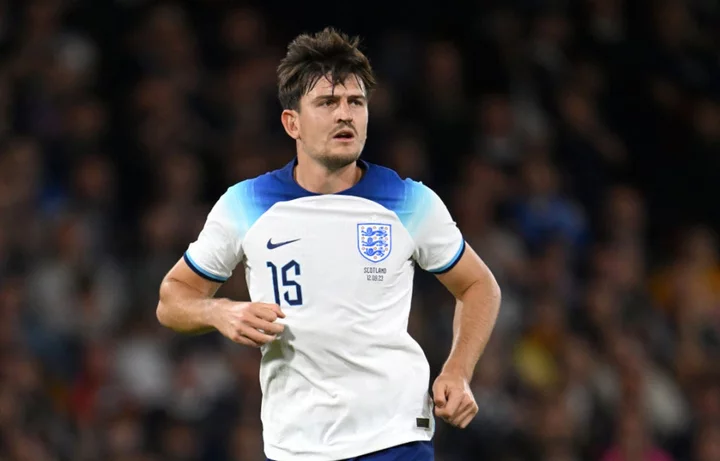
Harry Maguire’s latest challenge will be to rise above the tag of being a part-time player
The hesitation was telling, the first word something of a filler. The question may well have been one Gareth Southgate also asked. Why, when there was the chance of a move to West Ham, the prospect of first-team football and the opportunity of something equating to a new start, did Harry Maguire opt to stay at Manchester United? “Erm,” he began. “Well, I think it was a bit of both. Erm… how can I put this? We just didn’t come to an agreement and they were happy for me to stay and I was happy to fight for my place. I want to do that and every time I train or play I will give everything.” Which scarcely felt the most convincing of explanations, even if it hinted at a hold-up. The bare facts are that United accepted a £30m bid from West Ham; there was agreement there. Where the three parties could not all concur, then, was on the issues of remuneration and recompense. Maguire’s wages actually went up this summer, as a result of United’s qualification for the Champions League. West Ham were unlikely to pay him at a rate commensurate with a status as the world’s most expensive centre-back. The sense is that a pay-off was required but not agreed. It is not the only factor, as Maguire suggested. Erik ten Hag has demoted the 30-year-old, first from the team, then from the club captaincy. But he has never forced him out. The United manager wants two players for every position; he sees Maguire as one of his centre-back options. Admittedly, he often seems fifth in line: Raphael Varane and Lisandro Martinez became established as the preferred pairing last season, with Victor Lindelof a reasonably reliable deputy. Ten Hag is reluctant to use Maguire on the left and would rather field Luke Shaw there. To the outsider, the prognosis for Maguire looks bleak. Yet he has confounded expectations before: playing in League One at 21, he was a World Cup semi-finalist four years later. Footballers require a belief in their ability; there have been times on the pitch in the last two years when Maguire has looked to be suffering from a crisis of confidence but he sounded positive. “At club football, I want to play games, I want to play football,” he said. “The first four weeks were hard because it was one game a week and the manager didn’t select me but we have lots of games coming up now and I am sure I will play lots of games.” His first appearance of the campaign came as a substitute at Arsenal; with Shaw and Varane injured, his next outings may depend on whether Martinez, who came off at the Emirates Stadium, is also sidelined. His last game brought an own goal, benefitting Scotland. Southgate came to the centre-back’s defence after an evening of mockery at Hampden Park when it seemed as though Scotland’s new national sport is taunting Maguire. Nevertheless, his job would be easier if Maguire had joined West Ham, just as it would be had Jordan Henderson not signed for Al-Ettifaq. Leaving Old Trafford would have been a way of protecting his international place. “Of course, my England career is a big priority,” Maguire countered. “And so is my club career. I considered everything and I know, at the moment, when I have not started a game in the first four games of the season, the story comes to me. I finished off last season with two very strong performances for England and I have played in all five matches to help put us where we are in qualifying, so I need to keep performing when I get chosen.” And yet he can feel a part-time footballer, playing for country more than club. Maguire denied rustiness was a problem against Scotland, saying Southgate was very happy with his performance against Ukraine. His night in Glasgow, however, was notable for the reaction of the Scotland supporters and the goal he dispatched past Aaron Ramsdale. “Obviously, I am disappointed with the own goal but that is football,” Maguire said. “You are a centre-back and you put yourselves in those positions. I am really pleased with how I performed in the second half and how I dealt with it. Little things can go against you and one moment went against me. That is part and parcel of a defender.” Sadly for Maguire, he was already ridiculed at Hampden even before he accidentally converted Andy Robertson’s cross. He found an advantage among the ridicule. “It pretty much takes the pressure away from my teammates and puts it all on myself,” he said. “I would not say I am a person who struggles with pressure mentally, I have been through a lot in the last couple of years.” If anything, that felt an understatement. The next year assumes an importance, too. Southgate’s faith in Maguire appears unyielding, but a season on the sidelines at United could test it anyway. By opting not to leave, Maguire risked his place at Euro 2024. “It is way too far away to consider,” he argued. “I take everything as each week goes by.” But he could do with some good weeks at the club he perhaps should have quit. Read More Harry Maguire says he can deal with pressure after ‘banter’ from Scotland fans Bale shows his golf skills and Stokes goes big – Wednesday’s sporting social Criticism has not affected Harry Maguire, says England team-mate Aaron Ramsdale ‘Top-level’ England are the benchmark for improving Scotland – Lewis Ferguson Gareth Southgate says Harry Maguire criticism ‘beyond anything I’ve ever seen’ Maguire’s humiliation is complete — Southgate must save him from himself
1970-01-01 08:00
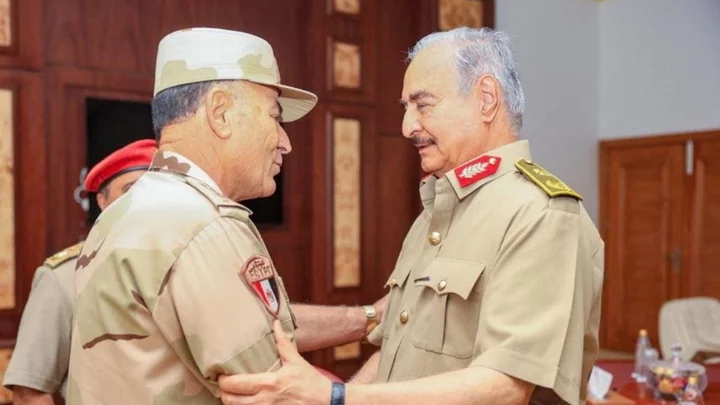
Libyan rivals 'co-ordinating over flood disaster'
More than 5,300 people died after dam bursts brought devastating floods to the eastern city of Derna.
1970-01-01 08:00
